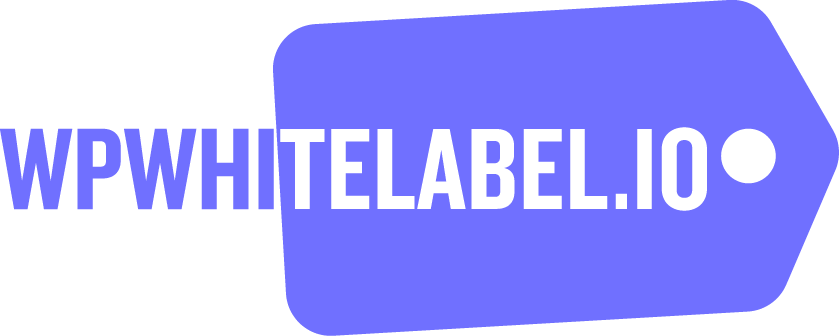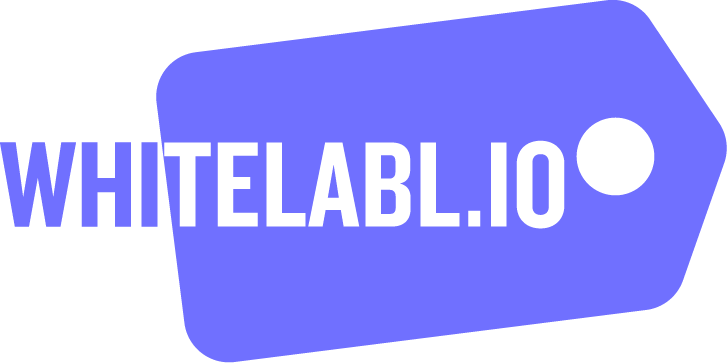Today, ensuring compliance with major privacy laws like the General Data Protection Regulation (GDPR) and the California Consumer Privacy Act (CCPA) is essential for any business handling personal data. When it comes to white label WordPress development, ensuring compliance is not just the responsibility of the client but also of the development agency. This article explores practical steps to maintain GDPR and CCPA compliance while using white label WordPress development services.
What is GDPR?
The General Data Protection Regulation (GDPR) is a European Union law that sets guidelines for the collection, processing, and storage of personal data. It protects the privacy rights of individuals and mandates that businesses must receive explicit consent before collecting personal data. Non-compliance with GDPR can result in hefty fines, up to 20 million euros or 4% of a company’s global turnover.
What is CCPA?
The California Consumer Privacy Act (CCPA) is a law that gives California residents specific rights regarding their personal data. This law applies to businesses operating in California or handling data of California residents. The CCPA grants users the right to know what data is being collected, the right to delete data, and the right to opt-out of the sale of their data. Failure to comply can lead to penalties ranging from $2,500 to $7,500 per violation.
Know more: White Label WordPress Development Legal and Ethical Considerations
Why Compliance is Crucial in White Label WordPress Development?

For businesses, the ability to offer seamless digital experiences without infringing on user privacy is vital. White label WordPress development provides agencies the flexibility to offer custom solutions under their brand. However, it is equally important to ensure that these solutions are compliant with privacy regulations like GDPR and CCPA. Ignoring compliance can not only damage the reputation of your business but can also lead to substantial legal consequences.
By focusing on privacy from the start of the WordPress development process, both white label development agencies and their clients can ensure a smooth, secure, and legally sound user experience.
Steps to Ensure GDPR Compliance in White Label WordPress Development
To ensure GDPR compliance in white label WordPress development, here are some steps that you need to follow:
Collect Data with Consent
GDPR mandates that businesses collect personal data only after receiving explicit consent from the user. In white label WordPress development, agencies must ensure that consent mechanisms, such as checkboxes or pop-ups, are built into the websites they create. For example, when building a newsletter sign-up form, it is important to inform users how their data will be used and they must explicitly opt-in before their information is collected.
Data Encryption
GDPR requires businesses to protect user data from unauthorized access. White label WordPress developers should implement strong encryption protocols to ensure that any personal data stored on the website is secure. This includes data like emails, payment details, and personal preferences. Using SSL (Secure Sockets Layer) certificates is a must, as they encrypt data in transit, ensuring that sensitive information is safe from hackers.
Right to Data Access
GDPR gives users the right to access their personal data. White label WordPress developers need to create easy-to-use mechanisms where users can request access to their data. This may involve adding a user dashboard or contact form specifically for data requests.
Data Erasure Mechanisms
GDPR includes the “Right to be Forgotten,” allowing users to request the deletion of their data. To ensure compliance, developers should build in functionalities that allow users to request data deletion easily. For instance, adding an automated system where users can delete their account, or requesting manual data erasure through a support form, ensures this requirement is met.
Data Breach Notification
In case of a data breach, GDPR mandates that affected users must be notified within 72 hours. WordPress development agencies need to ensure that such notifications can be automated or quickly sent to users in the event of a breach.
Understanding the Differences: WordPress Outsourcing vs White-label WordPress Development
Steps to Ensure CCPA Compliance in White Label WordPress Development
Here how you can ensure CCPA compliance in white label WordPress development:
Transparency in Data Collection
Under CCPA, businesses must inform users what personal information is being collected and how it will be used. Developers should ensure that websites clearly display privacy policies outlining this information. Pop-up notifications or banners informing users of data collection practices are good ways to achieve this.
Opt-Out of Data Sale
The CCPA allows users to opt out of the sale of their personal information. White label WordPress developers must create an easy and accessible way for users to exercise this right, such as a “Do Not Sell My Personal Information” button or link.
Implement Data Deletion Requests
Similar to GDPR, CCPA gives users the right to request that their personal data be deleted. This can be facilitated through a contact form or an account management tool on the website. It’s crucial to build in this functionality to ensure compliance.
Create a Verification System
CCPA requires businesses to verify the identity of any user making a data access or deletion request. White label WordPress development teams must implement a verification system, such as email confirmation or two-factor authentication (2FA), before granting access to or deleting user data.
Regularly Update Privacy Policies
CCPA compliance also demands that businesses update their privacy policies at least once every 12 months. White label WordPress developers must ensure that websites have easily updatable privacy policies and notify users whenever changes occur.
How Does it Work: White Label WordPress Development Automation for Agency Growth
Ensuring Website Performance While Maintaining Compliance
Balancing compliance with data protection laws like GDPR and CCPA while maintaining website performance is essential for businesses. Optimizing WordPress sites to comply with privacy laws without sacrificing speed and functionality is key.

Minimizing Impact on Website Functions
Compliance measures should not hinder website functionality. Implementing data retention and minimization policies ensures only necessary personal data is collected, reducing risks and enhancing user experience. By focusing on essential data, website owners can maintain usability and meet compliance requirements.
Optimizing Analytics Cookies
Businesses must obtain explicit consent before using analytics cookies to track user behavior, as per GDPR and CCPA. Minimizing data retention and anonymizing data where possible ensures compliance while still gathering valuable insights. Tools that manage cookie consent can help balance performance and privacy.
Ongoing Support and Monitoring
GDPR and CCPA compliance requires continuous monitoring and updates. Regular code audits ensure ongoing adherence to evolving privacy laws. Appointing a Data Protection Officer (DPO) can help organizations audit their data handling practices, mitigate risks, and maintain compliance.
Regular Audits and Responding to User Requests
Conducting audits helps identify compliance gaps, while tools like the WP GDPR Compliance plugin streamline user requests for data access and deletion, ensuring businesses meet legal obligations and maintain user trust.
Role of a Data Protection Officer
A DPO ensures that privacy strategies are in place and compliance is maintained. They oversee data protection impact assessments (DPIAs) and address concerns with supervisory authorities. DPOs operate independently and provide ongoing guidance to ensure GDPR and CCPA compliance is met without impacting website performance.
Also read: Top Ways How White Label WordPress Providers Can Help Agencies Scale During Seasonal Peaks
Conclusion
Ensuring GDPR and CCPA compliance in white label WordPress development is a multi-step process that requires careful attention to user privacy. By incorporating consent mechanisms, data encryption, and deletion options, agencies can provide their clients with legally compliant, secure websites. Privacy laws are constantly evolving, and staying updated on these changes is critical to safeguarding user data and maintaining compliance. While it may seem like an additional task, ensuring compliance can help build trust with your audience and create a more secure online environment for all.
Ultimately, both GDPR and CCPA are designed to protect the privacy rights of individuals, and adhering to these regulations demonstrates a commitment to transparency and responsibility in your business practices.
Frequently Asked Questions
What happens if my website isn’t GDPR or CCPA compliant?
If your website does not comply with GDPR or CCPA, you could face legal penalties, fines, and lawsuits. Additionally, non-compliance can damage your business’s reputation and lead to a loss of trust from customers.
Can plugins help with GDPR and CCPA compliance?
Yes, there are several WordPress plugins designed to help businesses comply with GDPR and CCPA. Plugins like CookieYes, WP GDPR Compliance, and Complianz can assist with consent management, cookie control, and privacy policy updates.
Do I need to comply with both GDPR and CCPA?
If you collect data from users in both the EU and California, you must comply with both regulations. Each law has its unique requirements, and it’s essential to ensure your website meets both sets of guidelines.
Is user consent enough for GDPR compliance?
User consent is one aspect of GDPR compliance, but it’s not the only one. You also need to ensure data security, give users access to their data, and allow for data deletion requests.
How often should I review my website’s compliance?
It’s a good practice to review your website’s compliance regularly, especially after any updates to privacy laws or significant changes to your website.



